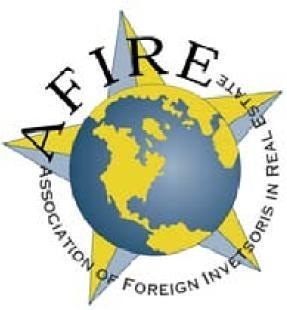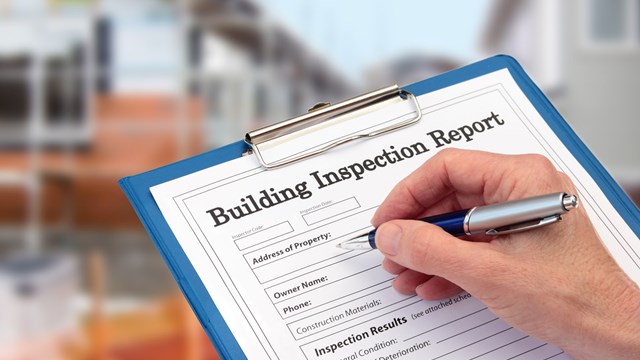
In the late 1980s, seeking high-growth, low-risk investment opportunities, and with an affinity for brick and mortar, European pension funds began to invest heavily in the American real estate market. So much money poured into the United States, in fact, that the pension fund managers decided to start a not-for-profit association for the non-U.S. real estate investment community doing business here. The result was the Association of Foreign Investors in Real Estate, better known by its acronym, AFIRE.
“The primary force was Dutch pension funds,” says Jim Fetgatter, AFIRE’s chief executive, now in his 18th year with the organization. “They were heavily invested in the U.S., and heavily invested in the real estate market.” AFIRE has a small, fulltime staff based in Washington and led by the chief executive. Prior to heading up AFIRE, Fetgatter worked for foreign investors, and had a decade and a half of real estate experience in his native Oklahoma.
Two decades after its founding in 1988, AFIRE remains the only not-for-profit of its kind. The organization’s original purpose was education—both for the foreign investors themselves, and the U.S. professionals doing business with them. This was particularly important after the passage of the Foreign Investment Real Property Tax Act, or FIRPTA, in 1980, an arcane but important piece of IRS legislation that mandates a withholding of ten percent on property sold by non-U.S. owners. The mission now is largely the same, Fetgatter says, although the organization “has evolved into a high-level, exclusive investment organization.”
Membership
Unlike many real estate organizations, which are dominated by real estate professionals, AFIRE is comprised mostly of investors.
“We are run and managed by the investors themselves,” Fetgatter says.
To join, you have to be “a non-U.S. investor—not a broker, not a banker, none of the service providers,” he says. “You have to be someone who takes capital over borders to invest.”
At this writing, there are 185 AFIRE members from over 17 different countries, although the number fluctuates somewhat. While countries like Japan, the Netherlands, the United Kingdom, and Canada have invested heavily in the U.S. real estate market, more of AFIRE’s members hail from Germany than any other country.
“Germany has been a worldwide investor since the mid-1990s,” says Fetgatter, “when the Wall fell. Germany has a high savings rate, and they like real estate. They use real estate in the same way Americans use mutual funds.”
Membership lists are not available to the public, and unlike some trade organizations, AFIRE is not trying to boost revenue by recruiting a bevy of under-qualified newcomers. Indeed, to join AFIRE, you must be invited. It is an exclusive organization, in every sense of the word. AFIRE members own some $700 billion worth of real estate around the world, about a third of it in the U.S. In fact, while many of the member corporations have offices in the United States, companies that are based here may not join.
“Individuals can be American,” Fetgatter explains, but they have to work for a company that is headquartered elsewhere. “You can’t be Prudential, to use an example.”
Benefits
As an educational and informational forum, AFIRE provides a place for international real estate professionals to interact.
“We’re a global networking organization,” Fetgatter explains.
This global networking is accomplished through a number of means. The first is simply sharing the membership directory, through which members can meet. The second is the media: the website and the newsletters.
The third—and certainly not the least—are the conferences. There are three major ones each year. In February, AFIRE members convene in New York for a day and a half event “loaded with speakers,” as Fetgatter puts it.
The annual meeting is held half the time in Washington—where Fetgatter and his staff work—and half the time in another major U.S. city. San Francisco was the most recent choice.
The third meeting is overseas. In June, AFIRE met in Berlin. Other cities to host AFIRE conferences include Dubai, Stockholm, and London.
What makes the meetings special is, first and foremost, the number of attendees.
“We have tight restrictions on how many people can attend meetings, even among membership,” Fetgatter explains. “We had 250 attendees at the annual meeting—a nice number for us.”
The lion’s share of those 250 were foreign investors, not service providers hoping to schmooze foreign investors. “It’s the flea-to-dog analogy,” Fetgatter says. “We have a lot more dogs than fleas.”
More impressive than the small number of attendees is the list of speakers. Among those who have addresses AFIRE’s membership: Colin Powell, Alan Greenspan, Donald Rumsfeld, Madeleine Albright, Rudolph Giuliani, John Major, Australian Prime Minister John Howard and, this past June, John Plender, senior editorial writer and columnist at the Financial Times.
“We like to have opinion makers,” Fetgatter explains. These opinion makers are used to addressing crowds by the thousands. Meeting Donald Rumsfeld at an AFIRE conference, given the 250 people in attendance, is like meeting him at a wedding. Obviously, this is quite a prerequisite of membership.
Another benefit is the periodic surveys conducted by Fetgatter and his team. In the 2007 survey, for example, AFIRE members reported that the top five U.S. cities for foreign investment were, in order, New York, Washington, Los Angeles, San Francisco, and Seattle. The top five cities worldwide for foreign investment, in order, were New York, London, Washington, Paris, and, perhaps surprisingly, Shanghai.
Future
AFIRE has hummed along efficiently for twenty years now, and its primary aim is to keep on doing what it’s done so successfully for those two decades. This means adapting to the times.
“The programming changes every year,” says Fetgatter. “The market’s changing so much.”
And with events scheduled for the rest of 2009 and early 2010 in Amsterdam, Chicago, Munich, Hong Kong, New York, and Cannes, AFIRE members will have ample opportunity in the coming months to network and learn more about U.S. real estate.
Greg Olear is a freelance writer and a frequent contributor toThe Cooperator.






Leave a Comment